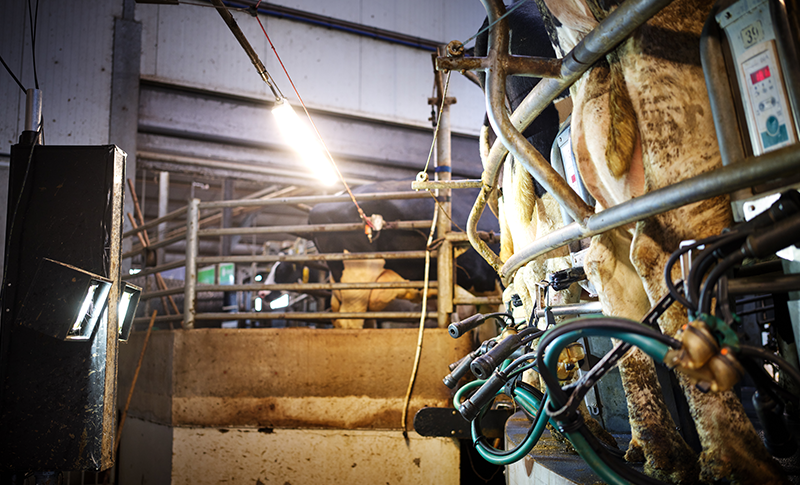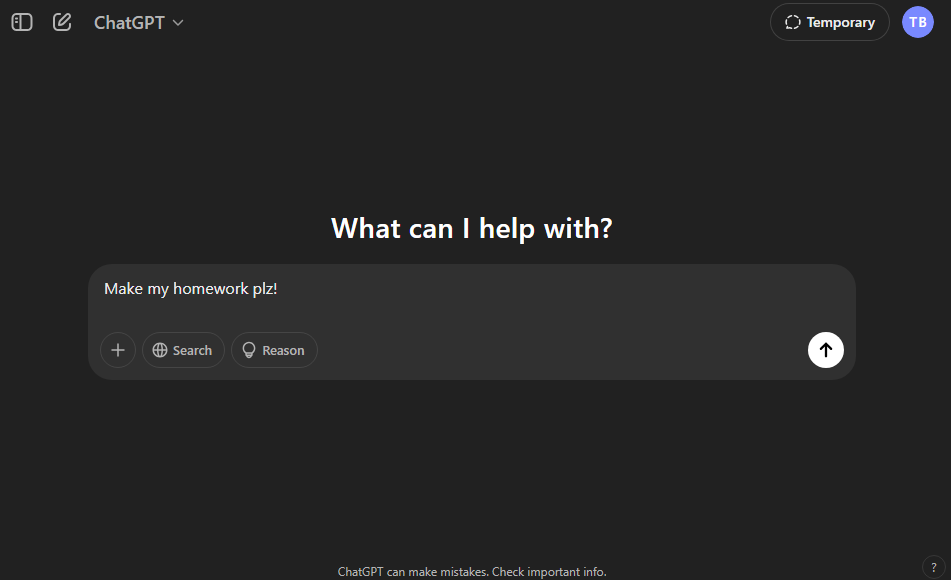Text Rob Buiter
With a 2.2 million euro grant from the Dutch Research Council NWO, the Artificial Intelligence for Sustainable Food Systems project, ‘AI4SFS’, led by professor of philosophy Vincent Blok, seeks to bridge the divide between the scientists eagerly embracing artificial intelligence and a society that has grave doubts about it.
Vincent Blok, the new professor of Philosophy of Technology and Responsible Innovation, tells it like it is: ‘Artificial intelligence is here to stay, whether we like it or not.’ But Blok does not close his eyes to the resistance that ‘AI’ evokes. ‘People have no wish to share their personal data with anonymous computers, or they are afraid that machines will take over all their work. And on the other hand, there are the people who think it is terrific and mainly see the opportunities. You could see that recently, for example, when the US company Open AI launched the now famous – or infamous – app ChatGPT. Students embraced it right away as a potential aid for writing theses, while lecturers worried about the authenticity of texts’.
We’d better steer it in a direction we find acceptable
In view of the rising tensions between the proponents and opponents of its technology, Open AI recently proposed we all take a six-month ‘breathing space’. Blok thinks that’s a bit extreme. ‘It suggests that human and artificial intelligence are similar, but they are not. Artificial intelligence makes correlations on a scale and at a speed that humans cannot match. Very useful, but they remain correlations based on big data, nothing more and nothing less. Human intelligence truly will always be incomparable.’
Blok notices that the most enthusiastic proponents of artificial intelligence are people working in the natural and technical sciences. The objections raised to it are largely of an ethical, legal or socio-political nature. ‘So when NWO launched a call for projects in the field of artificial intelligence, my then colleague Simone van der Burg and I saw it as an excellent opportunity. As philosophers, we are in a position to make the connection between technology and society in the field of food production and consumption. And we can start building that bridge now in what we call an ELSA lab, where the ethical, legal and social aspects of AI are studied.’
Smart milking robot
In the domain of food production and consumption, the social issues regarding AI are staring you in the face, says Blok. ‘For a start, look at the industrialization and instrumentalization of our food production. Many people think that animals and ultimately perhaps even consumers have become mere instruments in a vast industrial process. And if that’s how you see it, then AI is just one more step towards further industrialization of food production.’
They remain correlations based on big data, nothing more and nothing less
But there are other possible angles to take, in Blok’s view. ‘A farmer with 100 cows generally used to have to take blanket measures, but an intelligent milking robot can make a big difference to that. For example, when “Jannie 38” is being milked, a milking robot can also detect that this cow may have the beginnings of an udder infection. Like that, a robot of this kind can combine milk production with veterinary diagnostics. So AI can be a manifestation of a bio-industry taken to extremes, but it can also support a progressive, sustainable method of milk production and good, individualized care for farm animals. AI can serve industrialization without any concern for humans and animals, but as a technology, it can also be used to safeguard the interests of humans and animals as industrialization intensifies.’
Trays
The smart milking robot case study is one of the first six specific examples that will be studied at Blok and his colleagues’ ELSA lab. In another example, Guido Camps and his colleagues at Human Nutrition’s Hungry Robot Lab are looking at the food consumption side of things. ‘Among other things, we have developed trays with built-in sensors that record what you eat and how much. We can also use cameras to record how long you chew on a particular mouthful of food.’
And that information is where the added value of the ELSA lab comes in, says Camps. ‘In terms of privacy, people might not be too pleased about footage of their chewing faces disappearing into our database. But that doesn’t have to happen. To analyse chewing, we only need images of a few points on the corners of the mouth, the eyes or other coordinates of the face. So we didn’t fit our systems with the common ‘Raspberry Pi’ minicomputers found in many smart devices these days, but with a more powerful Jetson nano. That can process the images of the face instantly and store only the data points without the entire face.’
You have to give careful thought to how you keep that kind of information away from certain parties – like health insurance companies, say
Camps expects that this detailed recording of consumption patterns will primarily be of use in nutrition research and in healthcare. ‘You can imagine that for patients in rehab or who’ve just had an operation, it is important to know how much protein they’re getting. Their recovery depends on that. For “ordinary” consumers who want to record their healthy eating habits, I think there will be simpler systems in future, using the cameras in phones or on smart watches. But even there, you have to give careful thought to how you keep that kind of information away from certain parties – like health insurance companies, say.’
Tall stories
With each of his six case studies, like the smart milking robot and the tray that records your eating behaviour, philosopher Blok takes two perspectives. ‘On the one hand, we are looking at individual applications, such as the milking robot. It’s got to be crystal clear to the dairy farmer, for example, what information the milking robot collects and who it is shared with and how. People should always be centre-stage, as users and as designers. People must still be the orchestrators of artificial intelligence. That’s the only way to avoid tall stories about computers becoming autonomous and taking over.’
Blok’s second vantage point is that of the proverbial helicopter, with an overview of society. ‘That shows you that in many cases AI is now at the service of powerful companies whose main interest is in their own business model. And then you encounter the concerns of employees worried about losing their jobs, or politicians afraid that power will be concentrated among big players in the economy. Philosophy is pre-eminently the discipline that can bridge the divide between those echelons too.’
Disruptive technology
Looking at historic precedents, Blok predicts that AI will be at least as disruptive as the invention of printing, the steam engine or electricity. ‘These too were all developments that had a massive impact on everyday life. Just try to imagine a society without books or without industrialization. It’s almost impossible to do that. Similarly, artificial intelligence will drastically change the way we live and work. But personally, I am not too pessimistic about the direction this development will go in. As long as we don’t stop thinking carefully about the place of machines in relation to humans as the essential orchestrators.’
People must still be the orchestrators of artificial intelligence
Ultimately, Blok hopes that the ELSA lab in Wageningen will become the place where technology, economics and ethics come together. ‘From the One WUR point of view, it would be great if our lab can help bridge the gap between technology and society. And if anyone with questions about the ethical use of artificial intelligence could come to us.’

 ‘A farmer with 100 cows used to have to take blanket measures, but an intelligent milking robot can make a big difference to that.’ Photo Jeroen Bouman
‘A farmer with 100 cows used to have to take blanket measures, but an intelligent milking robot can make a big difference to that.’ Photo Jeroen Bouman 
![[Seriously?] AI denies spreading fake information](https://www.resource-online.nl/app/uploads/2025/01/36-WEB_DeNeus.jpg)
